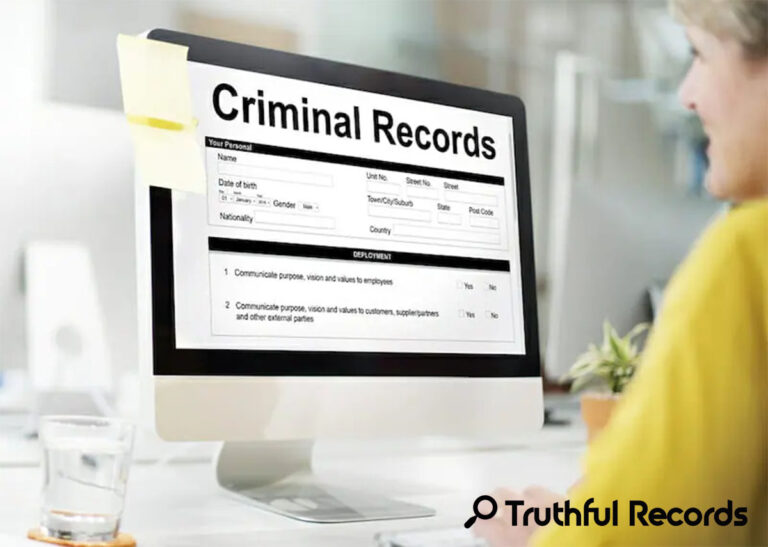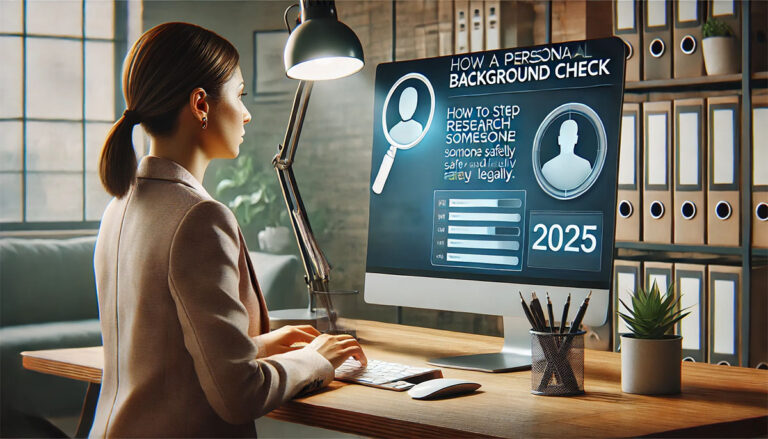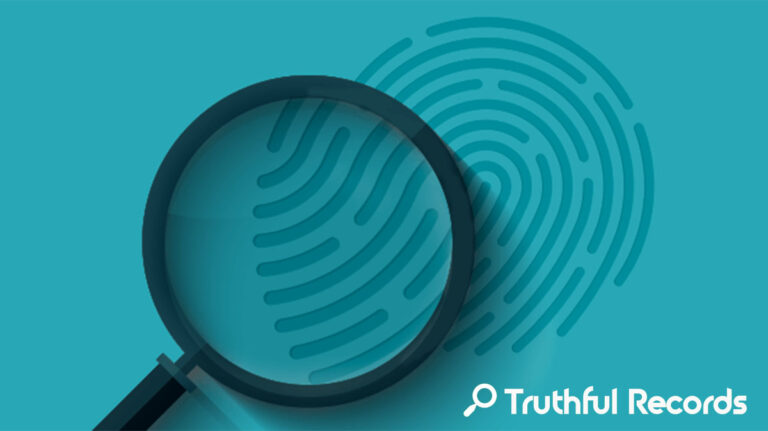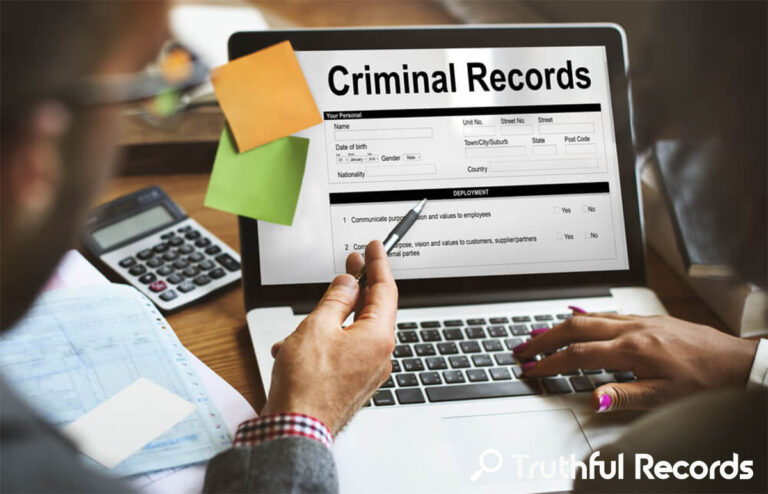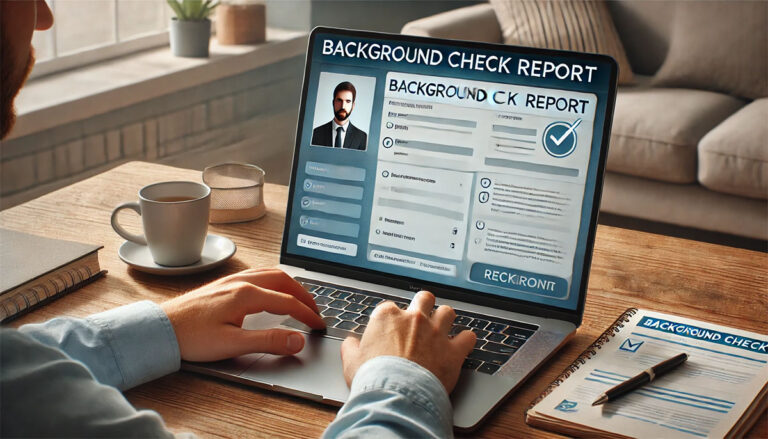Best Personal Background Check Services: Your Comprehensive Guide (2025)

Background checks aren’t just for employers anymore! Over 70% of people now use personal screening services to verify relationships, protect themselves, and gain peace of mind.
Top Personal Background Check Services

Ever wondered what shows up when someone looks you up online? Maybe you’re checking up on an old friend, vetting a potential roommate, or just curious about what’s out there. Whatever the reason, personal background check services make it easy to uncover public records, social media profiles, and even criminal history with just a few clicks! But not all services are created equal. Some are lightning-fast, while others dive deeper into the nitty-gritty details. Let’s break down the top players in the game and see which one suits your needs best.
Instant Checkmate Review
Instant Checkmate is all about deep dives. If you want more than just basic info, this service is for you! It pulls criminal records, social media profiles, phone numbers, email addresses—you name it. What really makes it stand out is the detailed reports, complete with graphs and interactive charts that make browsing through data a breeze.
One downside? It’s a subscription-based service, so you can’t just pay for a one-time report. That said, if you’re planning to run multiple searches, the unlimited plan is a great deal. Plus, it’s super easy to use! You just enter a name and state, and within minutes, you’ll have a full report at your fingertips.
BeenVerified Capabilities
If you’re looking for a background check service that’s beginner-friendly, BeenVerified is a solid pick. It’s got a clean, user-friendly interface and breaks down search results into easy-to-read sections. Want to find old classmates? Track down long-lost relatives? BeenVerified has your back.
It pulls data from a ton of public sources, including court records, property records, and even social media accounts. Another cool feature? The mobile app! You can run background checks right from your phone—perfect for on-the-go searches.
One thing to keep in mind: While it’s affordable, you do have to sign up for a subscription. But if you’re frequently looking people up, it’s worth it.
TruthFinder Features
TruthFinder is the go-to for those who want ultra-detailed reports. Unlike some competitors, it even scans the dark web for any signs of your personal information floating around. That’s right—it can help you see if your data has been exposed in breaches!
Another major plus? It offers reverse phone lookup and email searches, which come in handy when dealing with spam calls or mysterious messages.
One downside? It can feel overwhelming. The reports are PACKED with data, which is great for researchers but might be a lot for casual users. Still, if you want a powerful tool that leaves no stone unturned, TruthFinder is worth a look.
Intelius Search Options
Intelius is all about precision. If you need fast results and straightforward reports, this one delivers. It’s great for finding contact information, addresses, and criminal records. Plus, the search engine is super fast—you won’t be waiting around for results to load.
One standout feature is its reverse address lookup. If you’ve ever been curious about who lived at a particular property before you, Intelius can dig that up for you. It’s a great tool for researching neighborhoods before moving in!
That said, it does have a pay-per-report model, which can be annoying if you need to run multiple searches. Still, if you need quick and accurate info, Intelius is a solid pick.
PeekYou Information Services
PeekYou takes a slightly different approach. Instead of focusing solely on public records, it gathers data from social media, news articles, and blog posts. If you’re trying to track down someone’s online presence, this is the tool for the job!
It’s also completely free for basic searches, which is a huge plus. But for deeper dives, you’ll need to pay for premium reports. The trade-off? You get a more detailed look at a person’s digital footprint, which can be fascinating.
It’s not as robust as some of the other options when it comes to criminal or property records, but for social media sleuthing, PeekYou shines. Try it out here.
Key Factors in Choosing Services

When it comes to personal background check services, not all platforms are built the same. Some dig deep into public records, while others prioritize speed. The best service for you depends on what you’re looking for—whether it’s accuracy, affordability, or privacy. Here’s a breakdown of the key factors to consider before making your pick.
Accuracy Rates
Let’s be real—there’s nothing more frustrating than running a background check and getting outdated or incorrect information. Accuracy is a game-changer! Some services update their databases frequently, ensuring you get the most up-to-date criminal records, addresses, and social media profiles. Others? Not so much.
TruthFinder and Instant Checkmate tend to have higher accuracy rates because they pull data from a vast number of sources. On the other hand, some free services like PeekYou may not always have the latest updates. If accuracy is your top priority, always go for a platform with a solid reputation for delivering precise results.
Database Comprehensiveness
The depth of a service’s database makes all the difference. Some platforms can pull court records, social media activity, phone numbers, and even deep-web data. Others may only scrape the surface.
For those who want an all-in-one solution, BeenVerified and Intelius are solid choices. They offer everything from criminal background checks to property records, making them great for users who need a full picture. If you’re looking for just social media profiles and digital footprints, PeekYou is a better fit.
A good rule of thumb? The more comprehensive the database, the more detailed the report—so choose wisely!
Price Comparisons
Let’s talk money. Most premium background check services operate on a subscription basis, meaning you’ll need to pay monthly for unlimited searches. But if you only need one report, some services offer pay-per-search options.
Here’s a quick breakdown:
- BeenVerified – Monthly subscription model, relatively affordable
- TruthFinder – Subscription-based, but offers extensive dark web scans
- Instant Checkmate – More expensive but offers in-depth reporting
- Intelius – Offers pay-per-report options, ideal for one-time searches
- PeekYou – Free for basic searches, but limited in-depth data
If you plan to run multiple searches over time, a subscription will save you money. But if it’s a one-time thing, Intelius might be your best bet.
Search Speed
Some people need results ASAP. If you’re running a quick check before a meeting or verifying someone’s identity on the fly, speed matters.
BeenVerified and Intelius are among the fastest in the industry, often delivering results within minutes. On the flip side, TruthFinder and Instant Checkmate take a little longer because they compile more detailed reports.
If you’re in a hurry, go for a service that emphasizes speed without sacrificing too much accuracy.
Privacy Protections
This is a big one. Background check services collect a TON of personal data, so you’ll want to make sure your searches remain private. The best services offer encrypted searches and don’t notify the person you’re looking up.
TruthFinder and BeenVerified have solid privacy policies, ensuring that your activity remains confidential. Some services also allow you to remove your own information from their databases if you’d rather not be searchable online.
If privacy is a concern, always check a company’s opt-out policies and data protection measures before signing up.
Types of Information Accessed

Personal background check services pull information from a wide range of public records and databases. Whether you’re looking up an old friend, researching a potential roommate, or verifying someone’s identity, these services can reveal a surprising amount of detail. But what exactly can you find? Let’s break it down.
Criminal Records
One of the most sought-after pieces of information in a background check is a person’s criminal history. These records can include:
- Arrests and convictions – Misdemeanors, felonies, and even minor infractions.
- Warrants – If someone has an active warrant, some services will flag it.
- Sex offender registry – Many services cross-check national databases for this.
- Court cases – Any past or ongoing legal battles can sometimes be found in public records.
Not every service pulls from the same sources, so if you’re specifically looking for criminal history, it’s best to choose one that specializes in this type of data, like Instant Checkmate or TruthFinder.
Contact Information
Ever lost touch with an old friend or need to verify someone’s phone number? Background check services can help with that too! Most platforms provide:
- Current and past addresses – Great for tracking where someone has lived over the years.
- Phone numbers – Landlines and mobile numbers, though accuracy may vary.
- Email addresses – Some services can pull associated emails linked to public data.
BeenVerified and Intelius are known for their contact information searches, making them great tools for reconnecting with people.
Social Media Profiles
In today’s digital age, social media tells us just as much (if not more) than a criminal record. Many background check services scan the web for publicly available profiles, including:
- Facebook, Twitter, Instagram, and LinkedIn accounts
- Username history and activity
- Associated blog posts or online forum activity
PeekYou specializes in finding social media profiles, so if that’s your main interest, it’s a solid option. Just keep in mind that privacy settings may limit how much you can see.
Property Records
Thinking about buying a home or curious about a neighbor’s property history? Background checks often include property records, such as:
- Past and present ownership details
- Property value estimates
- Mortgage and foreclosure history
- Tax liens or unpaid property taxes
This type of information is especially useful for real estate investors and landlords. Intelius and BeenVerified provide some of the most detailed property reports.
Marriage/Divorce Details
While some people might not think about this, marital status is often included in background reports. These records can reveal:
- Marriage certificates – Proof of when and where someone was married.
- Divorce filings – If someone has legally ended a marriage.
- Spousal information – Some reports even list the names of current or past spouses.
TruthFinder and Instant Checkmate tend to have the most extensive marriage and divorce records, though availability varies by state.
Legal and Ethical Considerations
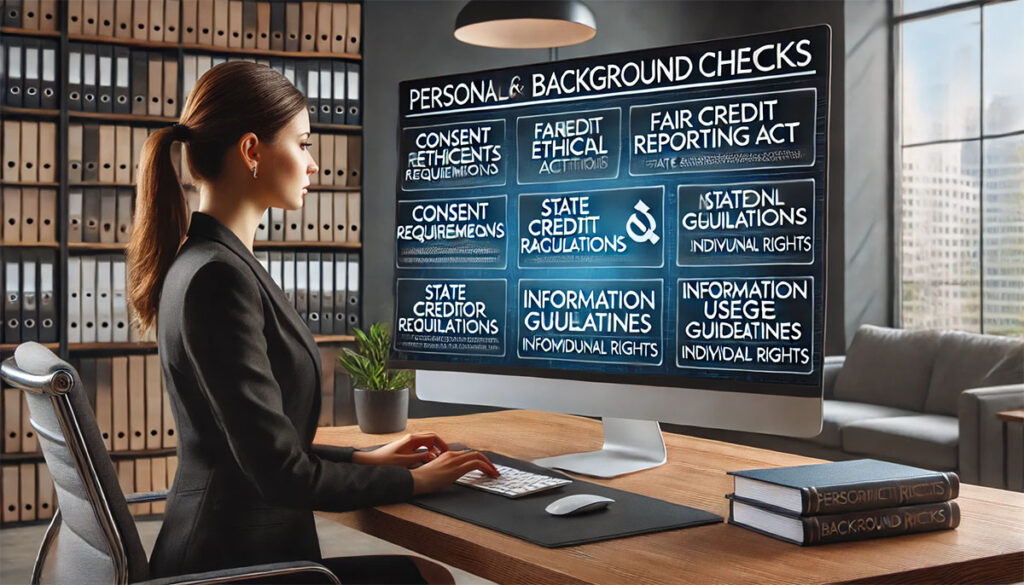
Background check services provide access to a wealth of personal information, but just because you can look someone up doesn’t always mean you should. There are laws and ethical guidelines in place to prevent misuse and protect individuals’ privacy. Before running a search, it’s important to understand the legal landscape. Let’s break it down.
Consent Requirements
First things first—do you need permission to run a background check on someone? The answer depends on the purpose.
- Personal curiosity? You typically don’t need consent to look up publicly available information.
- Hiring an employee? You absolutely need their permission.
- Screening a tenant? Consent is required under federal law.
- Checking out a potential date or reconnecting with a friend? No consent is necessary, but ethical considerations still apply.
While most public records are accessible to anyone, using someone’s information for official purposes (like employment or housing decisions) without their knowledge can land you in legal trouble. Always check the terms of service for the background check platform you’re using.
Fair Credit Reporting Act (FCRA)
If you’re using a background check for employment, housing, or credit decisions, the Fair Credit Reporting Act (FCRA) comes into play. This law ensures that individuals aren’t unfairly denied opportunities due to incorrect or outdated information.
FCRA-compliant background checks require:
- Written consent from the individual.
- A chance for them to dispute inaccurate information.
- A clear reason for denial if a decision is made based on the report.
Not all background check services are FCRA-compliant. For example, BeenVerified and Instant Checkmate are designed for personal use only—not employment screenings. If you’re hiring, use a service that follows FCRA guidelines, like GoodHire or Checkr.
State-Specific Regulations
Privacy laws vary by state, and some places have stricter rules on what information can be accessed. A few examples:
- California – Strong consumer privacy protections, making it harder to obtain certain records.
- New York – Limits on how far back an employer can check criminal records.
- Texas & Florida – Generally allow broader public access to background information.
Some states also have “ban the box” laws, which restrict employers from asking about criminal history on job applications. Always check your state’s regulations before conducting a search for official purposes.
Information Usage Guidelines
Even if a background check is legal, there are ethical boundaries to consider. Using someone’s personal information for stalking, harassment, or identity theft is not only unethical—it’s illegal.
Best practices for responsible use:
- Only search for information relevant to your purpose.
- Respect privacy—don’t share sensitive details without good reason.
- Verify information before making any assumptions or decisions.
Background check services pull data from multiple sources, and mistakes happen. Before taking action based on a report, double-check the details through official records when possible.
Individual Rights
If someone runs a background check on you, do you have any control over what’s out there? The good news is—yes, to some extent.
- You can request removal from many background check databases. Services like TruthFinder, BeenVerified, and Intelius have opt-out options.
- You have the right to dispute incorrect information. If a background check report has mistakes, you can challenge the accuracy of the data.
- You must be notified if an FCRA-compliant check is used against you. If you’re denied a job or rental due to a background check, the company must inform you and give you a chance to respond.
Want to see what’s out there about you? Running a self-check through a background check service can help you understand what others might find.
Safety and Privacy Protection

When using personal background check services, safety and privacy should be top priorities. With sensitive information at stake, it’s crucial to choose a platform that prioritizes secure data handling, user protection, and reliable customer support. Here’s what to look for when evaluating safety and privacy measures.
Data Encryption
One of the most important aspects of online security is data encryption. The best background check services use advanced encryption protocols to protect your searches, personal details, and payment information from cyber threats.
Look for services that mention:
- SSL (Secure Sockets Layer) encryption – This ensures all data transmitted between you and the website remains private.
- End-to-end encryption – Keeps your personal searches confidential, preventing third parties from accessing your data.
- Encrypted storage – Ensures that any stored reports or saved searches are protected from breaches.
Companies like TruthFinder and BeenVerified use SSL encryption, which is a good sign that your data is being handled securely.
Information Verification
The accuracy of a background check service is just as important as security. Some services prioritize real-time data verification, ensuring that the information you receive is up to date and reliable.
What to look for:
- Regular database updates – Avoid services that rely on outdated records.
- Multiple source cross-checking – High-quality platforms pull from multiple sources to ensure accuracy.
- User reporting options – Some platforms allow users to flag incorrect information, improving accuracy over time.
If accuracy is your main concern, Intelius and BeenVerified are solid options because they update their databases frequently.
Secure Payment Methods
If a background check service requires payment, it should offer secure payment processing to protect your financial details. Be wary of platforms that don’t use reputable payment processors or lack transparency in their pricing.
Signs of a secure payment system:
- Verified payment gateways – Services should use trusted processors like PayPal, Stripe, or Visa Secure.
- Clear refund policies – If a service doesn’t offer refunds or has confusing terms, proceed with caution.
- No unexpected charges – Always read the fine print to avoid hidden fees.
Services like Instant Checkmate and TruthFinder offer secure credit card processing and clear payment terms, reducing the risk of fraud.
Confidentiality Policies
Privacy policies vary by company, so it’s essential to choose a service that guarantees confidentiality. Some services may sell your data or keep records of your searches, which can compromise your privacy.
What to check in a privacy policy:
- Search confidentiality – Does the platform store your search history?
- Data-sharing policies – Do they sell your information to third parties?
- Opt-out options – Can you remove your data from their database?
BeenVerified and Intelius allow users to opt out of their databases, making them more privacy-friendly than some competitors.
Customer Support
If you ever run into issues—whether it’s billing problems, search errors, or privacy concerns—you’ll want a background check service with reliable customer support.
What to look for:
- Multiple support channels – Live chat, email, and phone support should be available.
- Responsiveness – Test their response time by sending a simple inquiry before subscribing.
- Refund assistance – If you decide to cancel, will they honor their money-back policy?
Services like TruthFinder and BeenVerified tend to have better customer support compared to competitors, offering quick responses via phone and email.
Conclusion
Choose a background check service that balances comprehensive information, accuracy, and ethical standards. Prioritize your safety and privacy.

